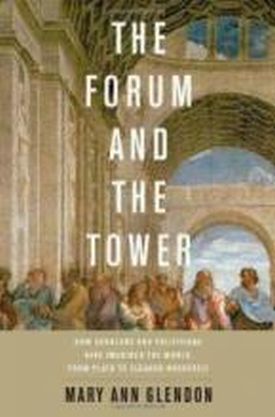A lesson in wrongology
From The New CriterionHere are the words you never thought you would read in The New York Times, at least as we have known our newspaper of record since the beginning of the Trump era: “I was wrong.” And yet there they were this past July, not once but many times over, as eight of the Times’s star columnists participated in an interactive feature under that title, each of them professing to have seen the error of his or her ways in some significant — or, more often, insignificant respect. It was almost enough to make me think that I had been wrong in supposing that the assiduous propagandists of the post-Rutenbergian Times had chosen to reject traditional news-and-comment for ideology at least partly as an insurance policy against ever having to admit to error — since the currently regnant ideology subscribed to by the international left, of which the Times is America’s house organ, must always be presumed to be right by definition. “On the right side of history,” as its adepts are fond of putting it. In the same way, “Science” in left-wing parlance has been subsumed by ideology and now commonly means never having to say that you are sorry. It’s the Science “deniers” who are always and inevitably wrong, by definition (see “Real Science” in The New Criterion of February, 2022). And yet long experience of these usages has made me skeptical that “I was wrong,” in the pages of The New York Times, could actually mean anything of the kind.
I was not wrong to think so.
Of the eight participants, the highly ideological Paul Krugman was perhaps the least plausible as a claimant to misjudgment in his contribution, headed “I Was Wrong About Inflation.” Although, as I pointed out in these pages some months ago (see “Of some highly convenient truths” in The New Criterion of February, 2022), the Nobel laureate had kind-of-sort-of admitted to error on this subject before, it had been then and was again now error of the most trivial kind, essentially no more than a mistake in arithmetic — as if to be wrong about “magnitude” (as he puts it this time around) were, in defiance of logic, so insignificant a mistake as hardly to be considered wrong at all. In any case, he argued on the earlier occasion that a little interpretive ingenuity would make him out to have been more right, at least, than his wrong critics, and “I Was Wrong About Inflation” in July rehashed this argument. “But what, exactly, did I get wrong?” he asked, rhetorically.
Both the initial debate and the way things have played out were more complicated than I suspect most people realize. . . I know it sounds lame to say that Team Inflation was right for the wrong reasons, but it’s also arguably true.” Looking ahead, the economy is currently cooling off — the decline in first quarter G.D.P. was probably a quirk, but overall growth seems to be running below trend. And private sector economists I talk to mostly believe that inflation either has already peaked or will peak soon. So things may seem less puzzling a few months from now. In any case, the whole experience has been a lesson in humility. Nobody will believe this, but in the aftermath of the 2008 crisis standard economic models performed pretty well, and I felt comfortable applying those models in 2021. But in retrospect I should have realized that, in the face of the new world created by Covid-19, that kind of extrapolation wasn’t a safe bet.
If this mistaken application of an otherwise reliable economic model is “a lesson in humility,” he can never have experienced — as one might almost have expected — anything like real humility. He is like the man who, by beginning an apology with the words, “I’m sorry that you were offended,” shows that he has never known what real contrition is. So far from being a lesson in humility, Professor Krugman’s turns out to have been a lesson, no doubt learned long ago by him, that, so long as you can cling to your ideology you need never admit to being really wrong— or, if you prefer, you never have to be genuinely humble.
The other seven of the Times’s wrong-uns likewise hedge their mea culpas with so many qualifications and self-excusings as to be often comical in their posturing. Both Bret Stephens and Gail Collins — wrong about early Trump supporters and Mitt Romney respectively — claim to have erred only in being too critical of those Republicans who, if the authors had only known exactly how vile and despicable President Trump would eventually turn out to be, would by comparison hardly have deserved to be criticized at all. No one at the Times, needless to say, supposes him- or herself to have been wrong in thinking Mr Trump egregiously vile and despicable in the first place.
Zeynep Tufekci (“I Was Wrong About Why Protests Work”) doesn’t say she was wrong to have protested against the Iraq War, only that she was wrong to suppose her protest would do anything to prevent what she calls that “catastrophic” conflict. “Being on the right side of history,” she writes, “doesn’t insulate one from weak analyses or the temptation to conflate what we collectively hoped to be true with an examination of how things really were.” No, but it does apparently insulate one from any possibility of being wrong in any shaming sense, let alone wrong in supposing oneself to be “on the right side of history.” Ideology’s promise of certitude remains the one thing that can never be wrong.
Good old Tom Friedman (“I Was Wrong About Chinese Censorship”) admitted to being wrong in thinking that the long-running Chinese crackdown on free speech would eventually have to liberalize itself in harmony with the country’s apparent economic liberalism, but he is still confident enough of his own place in the vanguard of “history” that he thinks he may yet turn out to have been right all along. “While I plead guilty to premature optimism when it comes to China developing a more open information ecosystem, I’m going to ask the court for a suspended sentence. Let’s all wait and see how this plays out over the next decade.”
David Brooks confessed to being wrong for once having thought too well of “capitalism,” while Michelle Goldberg did the same for once having thought too ill of Al Franken — though she still thinks he was right to have resigned from the Senate over allegations of sexual impropriety. These, too, we may be sure, are not examples of wrongthink that will make anyone at The New York Times and what Tom Friedman would call its “information ecosystem” think any the less of these pundits or their reputation for good judgment. Only Farhad Manjoo (“I Was Wrong About Facebook”) is willing unambiguously to admit to being wrong about something.
“There is no longer any good reason to avoid Facebook,” I wrote shortly after the then- five-year-old company announced growing to 150 million users worldwide. “The site has crossed a threshold — it is now so widely trafficked that it’s fast becoming a routine aid to social interaction, like email and antiperspirant.” I wasn’t just wrong about Facebook; I had the matter exactly backward. Had we all decided to leave Facebook then or at any time since, the internet and perhaps the world might now be a better place.
But, in addition to his obviously being proud of that long-ago witticism about antiperspirant, even he cannot refrain from hoping that he may in the end prove to have been right after all:
It might be decades before we have any sense of an answer to whether, on balance, Facebook in particular and social networks more generally have improved or ruined society.
I doubt that any of this put-on humility will come as a surprise to the reader, any more than it did to me, but it does raise the question of why such people feel the need to pretend to a humility they obviously do not feel? Even among the most self-righteous ideologues, as sure of themselves as they are of “history,” there must be some residual cultural respect or honor accruing to those willing to admit, or seeming to be willing to admit, that they are or at least might be in the wrong about something. And if a pretense of self-awareness must stand in for the real thing, at least it means they recognize that self-awareness is a desirable quality to possess — even if they don’t possess it themselves.
Perhaps an occasional indulgence in the pretense eases a bad conscience about their ideologically-generated self-surety, but it can never call into doubt the ideology itself, which must be why one so often reads things written by intelligent people which — so those of us of meaner intelligence but minimal common sense must suppose — they cannot possibly believe to be true. I have no very high opinion of the intelligence of President Biden, as the reader will no doubt be aware, but even he — even Paul Krugman — cannot possibly believe that his latest proposal to spend hundreds of billions of dollars on “climate change” and favors for Democratic constituencies can be accurately described as “the Inflation Reduction Act.” Yet rather than seeing this as a mere cynical manipulation of language in contempt of voters’ intelligence, perhaps we ought to take it as a tribute to the ingenuity of the ideology which has worked out — theoretically, of course — how all the new spending and taxes will reduce inflation.
 |
| George Soros |
George Soros’s multi-billion dollar fortune, now much depleted by lavish gifts to left-wing causes and movements, is a much greater testament to his brain-power than Professor Krugman’s Nobel prize is to his, but you wouldn’t know it from the former’s Wall Street Journal op ed explaining “Why I Support Reform Prosecutors.” What he calls “reform prosecutors” we of the non-reform persuasion are more likely to call non-prosecutors since, although they are ostensibly elected to prosecute criminals, they are pre-disposed not to do so when the criminals are of favored ethnic or racial categories on the grounds that, as Mr Soros puts it, “black people in the U.S. are five times as likely to be sent to jail as white people. That is an injustice that undermines our democracy.”
In fact, that is an injustice only if you assume, as Mr Soros appears to do, that black people are five or more times as likely to be wrongly convicted of crimes as white people are. Does he really believe that? Perhaps decades of immersion in left-wing identity politics have so undermined his native wit as to life’s plausibles and implausibles that he does, but if so it is still a stretch to claim that this somehow “undermines our democracy.” On the contrary, I would have thought that it is the priori assumption of innocence in one interest group of our democracy, relative to another, that undermines not just the democracy but the entire social fabric.
I readily admit that I haven’t got 8.6 billion dollars — Forbes’s most recent estimate of the Soros net worth — to back up my dodgy opinions, but at least I can claim them as my own and not derived from the talking points of some pre-fabricated ideology which has made specious reasoning like his respectable in our media. I suspect that Mr Soros, like many another rich man before him, has bought his opinions off the shelf, as part of an ideological package that comes with the manufacturer’s guarantee of inerrancy. How else can he have come to believe, as he appears to do here, anything so preposterous as that sending people to prison, whether they are guilty or innocent, and not letting them out of prison is what jeopardizes the public safety?
Even more implausible is the belief that, as he writes in another place, “the threat to the US from the domestic enemies of democracy is even greater” than that from foreign ones, and that these domestic enemies “include the current Supreme Court, which is dominated by far-right extremists, and Donald Trump’s Republican Party, which placed those extremists on the Court.” If half the country voted for “Donald Trump’s Republican Party” — in part precisely so that it would put those same “far-right extremists” on the Court — it would seem to be at the very least a misnomer to call them extremists. Nor is it possible, without the risk of terminological inexactitude, to see the Court as “dominated” by the “enemies of democracy” when the particular decision of which Mr Soros was complaining in this article returned a matter formerly decided by judicial fiat to the democratic process in the several states.
Once again he appears to be merely parroting the views of those we must suppose to be either stupider or more disingenuous than himself, because he imagines that the ideological packaging in which they come makes them proof against vulgar error. He has certainly paid enough for them that this is the least he ought to be able to expect for his money. And maybe this is what is behind the ever-greater difficulty we all of us have — I would be a fool to except myself, of course — in admitting not just that we are wrong but that we ever could be wrong. Like George Soros but in a less material sense, we have invested too much of ourselves in our mere opinions — largely because we have taught ourselves to believe that they guarantee us a place on the right side of history.
As I pointed out on my last appearance in these pages (see “Reality Check” in The New Criterion of June, 2022), identifying ourselves with our opinions makes it impossible to change or revise them without a kind of self-annihilation. Social media, which takes the blame for almost every bad thing these days, encourages us to brand ourselves by our political views as well as by our interests, and to judge ourselves and others by the extent to which we remain faithful to our self-chosen brand. How far away now seems Emerson’s once-famous dictum that “a foolish consistency is the hobgoblin of little minds.” Little minds are now the only kind we may aspire to — because it is only by keeping them so little that we think we can protect ourselves against the existential calamity of being wrong. The courage to be wrong, and to admit to being wrong, is, rather, the precondition of being right, if only we knew it, as both scientists and moralists once did.
Discover more from James Bowman
Subscribe to get the latest posts to your email.







